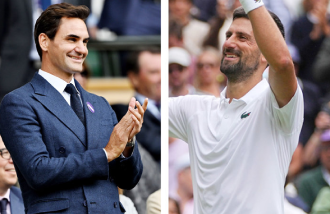GNP Leads 11 of 16 Election Races
GNP Leads 11 of 16 Election Races
Posted May. 04, 2006 08:29,
With the May 31 local election around 30 days away, Grand National Party (GNP) candidates are leading in 11 races, such as Seoul, Gyeonggi and Busan, out of 16 constituencies for provincial governors and mayors.
According to a survey, two Uri Party candidates are leading in Daejeon and Jeonbuk, candidates of New Millennium Democratic Party are in Gwangju and Jeonnam, and one independent candidate is leading in Jeju.
Dong-A Ilbo and the Korea Research Center (KRC) conducted a telephone survey of 8,000 people (500 voters aged over 19 in each of 16 nationwide cities and provinces) beginning April 30 to May 2. The survey found that GNP candidates are at the top of the race in Gangwon and Chungcheong provinces, as well as the metropolitan and Yeongnam areas.
For those who are willing to vote in the above regions, the gap in approval rating between the first and second-ranked candidates got even wider.
In Seoul, GNP candidate Oh Se-hun was ahead of Kang Kum-sil from the Uri Party by 18 percentage points, and in Gyeonggi Province, the candidate from the GNP, Kim Moon-soo, led Uri Party candidate Jin Dae-je by more than 20 percentage points.
In Daejeon and Jeonbuk where the Uri Party was way ahead of other parties, Uri Party candidates Yeom Hong-cheol and Kim Wan-ju gained approval ratings higher than Uri Party supporting rate based on high preferences for the candidates in both regions.
In Gwangju, where a Uri Party candidate is not yet decided, the survey of a virtual race showed that New Millennium Democratic Party candidate Park Gwang-tae led by more than 15 percentage points regardless of any potent candidates.
In particular, in Jeonnam Province, New Millennium Democratic Party candidate Park Joon-young beat a candidate from the Uri Party in all categories such as candidate preference and party approval rating.
For Jeju, the results showed that if candidate Kim Tae-hwan, who defected from the GNP, runs as an independent, he will gain an approval rating higher than those of candidates from the GNP and Uri Party. However, Kims supporting rate gap with second-runner Hyun Myeong-gwan from the GNP was 11.4 percentage points, the narrowest in the 16 regions.
Meanwhile, when asked whether or not they would vote in the election, 54.1 percent of those surveyed said that they certainly will, 28.2 percent answered that maybe they would, and 14.0 percent of the participants replied that they wont vote.
Back in 2002 local election, 56 percent of those surveyed 20 days before the voting day said that they certainly would vote (It was conducted by KRC, and the real turnout was 48.8 percent).
Sung-Won Park sunny60@donga.com swpark@donga.com



![[단독]김건희 논문 검증단 “이진숙, 제자 업적 가로채…지명철회 요구할것”](https://dimg.donga.com/c/138/175/90/1/wps/NEWS/IMAGE/2025/07/09/131969512.2.jpg)
![[속보]尹 구속심사 6시간 40분만에 종료…서울구치소서 결과 기다려](https://dimg.donga.com/c/138/175/90/1/wps/NEWS/IMAGE/2025/07/09/131972678.1.jpg)

![[단독]김영훈 “文정부때 최저임금 인상-정규직 전환에 사회 갈등”](https://dimg.donga.com/c/138/175/90/1/wps/NEWS/IMAGE/2025/07/09/131970720.1.jpg)
